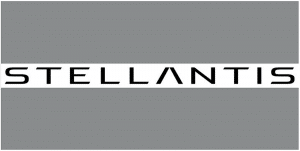
The $38 billion merger of Fiat Chrysler Automobiles and Groupe PSA appears to be ready to clear its final hurdle: approval from European Union anti-trust regulators.
Quoting “people close to the matter,” Reuters news service is reporting the deal that will create the new industry giant Stellantis is “set to win EU approval,” though it did not indicate precisely when that will happen.
A senior source at the FCA side told TheDetroitBureau.com there has not yet been a ruling, characterizing the reports by Reuters and others as “rumor stories.” The official said the two partners stick with their earlier statement that they “expect (the merger) to close by the end of Q1 ’21.”
(FCA, PSA pick name for post-merger company: Stellantis.)
Almost from the day it was formed, Fiat Chrysler has been looking for a third partner. Its former CEO, the late Sergio Marchionne, approached a number of competitors about tying up, including giants General Motors and Volkswagen. But it was only after his July 2018 death that things started to come together.

In the spring of 2019, FCA confirmed it was talking to France’s largest automaker, Renault, about a merger. That deal collapsed in the final hour, however, due to concerns raised by the French government and opposition sounded by Nissan, Renault’s alliance partner.
Months later, FCA revealed it had entered talks with Renault’s crosstown rival, PSA. A formal deal with the automaker, the parent of the Peugeot and Citroen brands, was announced Nov. 30. But the two tentative partners warned the proposed deal would have to clear a number of hurdles, regulatory approval in the EU considered the likely toughest challenge.
According to Reuters and others that appears to be resolved or, at the least, very nearly so.
(FCA CEO Manley won’t be on the board after merger with PSA is completed.)
The all-share deal would create a giant with an array of brands, including FCA’s Alfa Romeo, Chrysler, Dodge, Fiat, Jeep, Maserati and Ram, and PSA’s Citroen, DS, Opel/Vauxhall and Peugeot. That broad mix had worried some consumer groups, while questions were raised about the potential impact on production and jobs by some of the countries where FCA and PSA now operate.

In particular, the two companies have worked to allay fears of major cutbacks in France and Italy. While top managers have outlined plans to trim costs by $6 billion following the merger, they insist they will be able to do that without closing any plants. They have outlined 40% of those cost savings coming from purchasing, 40% from combining product development efforts, and 20% from marketing and other operations.
But it is believed they will need to make a number of concessions to satisfy European regulators. Among other things, they will take move to reduce the dominance the combined enterprise would have in the European commercial van sector. For one thing, PSA has offered to increase production capacity for Toyota which currently sources a European van from a joint venture it has with the French automaker.
Exactly what other changes will follow approval of the merger remain a matter of speculation. That includes the potential role of Michael Manley, the CEO of FCA who played a major role in negotiating the Stellantis deal. After the merger, PSA’s Chief Executive Carlos Tavares will retain that title. The new company’s chairman will be John Elkann. The heir to Fiat’s founding Agnelli family, he has served as chairman of FCA.
(Pandemic forces FCA, PSA to reduce merger-based payouts.)
The U.S. is expected to retain a major role in the new enterprise, if for no other reason than the revenues brought in from Fiat Chrysler’s Jeep and Ram truck brands. That money will have to help prop up operations in Europe and, in particular, pay for developing the electrified and autonomous vehicles that Stellantis will need going forward.








Can they PLEASE change the name?!?!?!?! Leave it for the new Starship / Star Trek television shows…